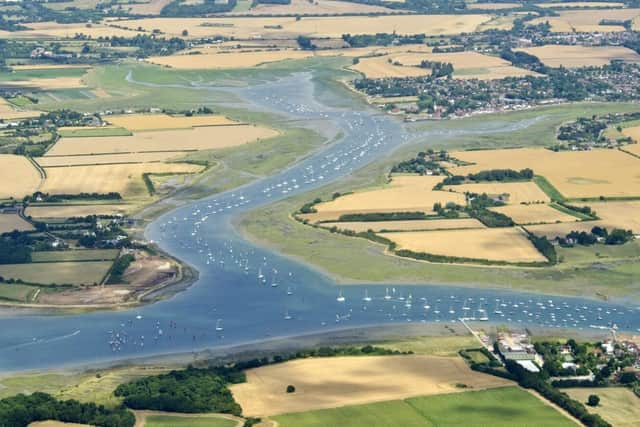Chichester Harbour National Landscape: Areas of Outstanding Natural Beauty renamed to underpin ambitious targets for nature
and live on Freeview channel 276
Richard Austin, Chichester Harbour AONB Manager commented: “Becoming a National Landscape underlines the national importance of Chichester Harbour and is one piece of the jigsaw that will make us fit for purpose as a 21st Century landscape. The renaming must be a platform for positive and long-lasting change. We will look forward to the Government bringing in new legislation that details expanded purposes for National Landscapes, greater powers, and more resources, so that we have the tools we need to better look after the natural environment of Chichester Harbour in years to come.”
This is a significant milestone for the UK and the next step in fully realising the National Landscapes’ vision to be the leading exemplars of how thriving, diverse communities can work with and for nature in the UK: restoring ecosystems, providing food, storing carbon to mitigate the effects of climate change, safeguarding against drought and flooding, whilst also nurturing people’s health and wellbeing.
Advertisement
Hide AdAdvertisement
Hide AdNational Landscapes teams have been at the forefront of delivering natural solutions to the main challenges facing the nation for many years. The new brand underscores their commitment to redoubling their efforts and engaging with a wider audience. In 2019, teams set themselves the most ambitious targets for nature in the sector and continue to work to meet them.


By 2030, National Landscapes aim that, within their boundaries: at least 200,000 hectares of the most valuable natural areas (Sites of Special Scientific Interest or SSSIs), will be in favourable condition; 100,000 hectares of wildlife-rich habitat outside of SSSIs will be created or restored, and 36,000 hectares of woodland will have been planted or allowed to regenerate. National Landscapes Partnerships will also focus on habitat restoration to ensure the protection of some of our most endangered species and increase their work to help more people to enjoy time spent in beautiful places.
Because of their size and scope, National Landscapes are ideally positioned to address the environmental issues the UK is facing. There are 46 National Landscapes in the UK, covering 14% of England, Wales and Northern Ireland including moorland, farmland, coasts and forests. They include UNESCO World Heritage Sites, Biosphere Reserves, a Geopark and International Dark Sky Reserves. 66% of people in England (44 million) live within 30 minutes of a National Landscape and at least 170 million people visit them every year. Tony Juniper, Chair of Natural England says: “For decades the AONBs have helped protect the beauty of our finest landscapes. Today though we need so much more from these wonderful places, helping us adapt to climate change, catching carbon, restoring depleted wildlife and encouraging more people outside, at the same time as producing food, sustaining local communities and enhancing historic environments.
“Modern challenges require new approaches and today marks the beginning of a new phase for our National Landscapes, as they strengthen their existing partnerships, and forge new ones that will secure in perpetuity the huge range of benefits that come from these special places. Big change has taken place during the past 75 years and bigger changes still can be expected during the decades ahead. Uniting the National Landscapes in this way is very welcome and spells immense opportunity and great hope for the future.”